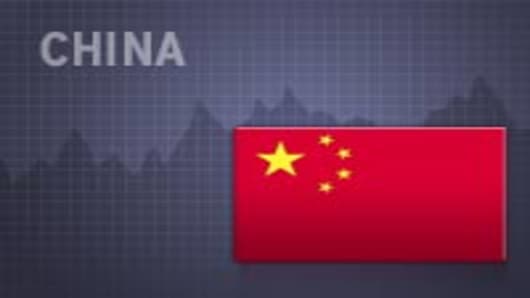China will use a variety of tools, including interest rates, to stabilize growth and keep the world's fourth-largest economy on an even keel, the central bank said on Sunday.
The People's Bank of China, in a summary of its second-quarter policy meeting, pledged to keep a "consistent" monetary stance, the same word used on Friday by the top leadership of the ruling Communist Party to describe the planned thrust of economic policy for the rest of 2008.
China wants to tamp down excess liquidity and inflationary pressure while avoiding undue pain for its export sector, which is feeling the pinch of weakening global demand, tight credit and an appreciating currency.
"Unfavorable factors in the international economy and serious natural disasters at home have added to uncertainty, but have not changed the fundamentals of China's economic development," the central bank said in a statement posted on its website (www.pbc.gov.cn). "We should let interest rate leverage play a reasonable role and steadily push forward interest rate reform."
Economists said a pledge to use interest rates appropriately should not be taken as a signal that a tougher monetary policy was in the offing. For a start, the statement did not explicitly mention tightening monetary policy.
Slowdown
The central bank, despite declaring in late 2007 that it was shifting to a tighter stance, has not raised benchmark rates since December.
Since then, economic growth has slowed and inflation, though still uncomfortably high, has eased from a near 12-year peak in February.
Frank Gong, an economist with JPMorgan Chase in Hong Kong, said the statement issued after Friday's Politburo meeting meant a rise in interest rates this year was very unlikely.
"The meeting shows that the central authorities are increasingly concerned about the potential slowdown of the Chinese economy, given the further downshift in global demand and financial market turmoil, the increasing challenges faced by small and medium-sized enterprises and rising living costs for low-income groups," he said in a report.
A meeting of top officials earlier this month had focused on the Pearl River Delta and Yangtze River Delta, both export hubs facing job losses, especially in the textile sector, as well as on the northeast of the country, which suffered massive layoffs and bankruptcies in the 1990s, the official Xinhua news agency said.
The meeting had concluded that China must steer a course between fast growth and inflation, while "not allowing this year's economic development to obscure next year's", it said.
The leaders had also decided to focus on domestic consumption while increasing economic openness, Xinhua said.
Underlining official concern over speculative inflows, the central bank issued a second statement on Sunday in which it vowed to keep a tighter check on "abnormal" foreign currency flows, and to effectively prevent excess in short-term capital flows.
It reiterated its long-standing policy of keeping the yuan "basically stable" at a "balanced level".
The yuan has been allowed to appreciate by about 7 percent against the dollar in 2008, but its rate of climb slowed in the second quarter as concerns grew that rapid appreciation was attracting hot money while harming exporters.
Tight credit meant to discourage overheated investment has added to the pain for private exporters and trading companies, who have been unable to access credit for cash flow and investments.
The central bank called for financial institutions to lend more to small enterprises, and for increased competitiveness of the financial sector.


